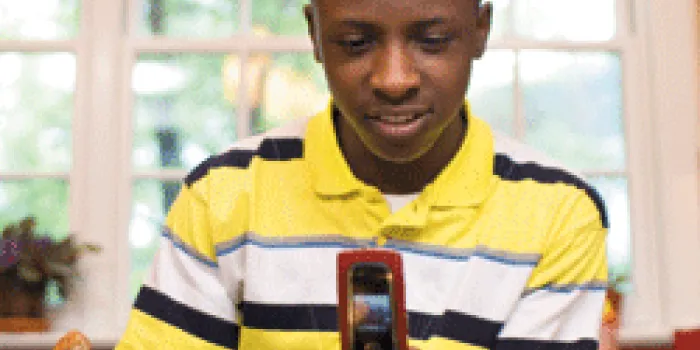Deciding if you should leave your child home alone can be difficult—nerve-wracking even. But it’s a choice that many parents make. About a third of school-age children are home alone for some part of the week, according to the US Census Bureau. If your child is joining that group, prepare for a greater chance of good outcomes. Read on for tips.
Consider your child’s age and maturity. There are special considerations when your child has hemophilia. Generally, a child shouldn’t be left unsupervised for any length of time before age 12, recommends Debra Holtzman, JD, MA, author of The Safe Baby: A Do-It-Yourself Guide to Home Safety and Healthy Living (Sentient Publications, 2004).
Check with your state Department of Health and Human Services or your local child welfare agency to find out if there are legal age restrictions for latchkey kids in your area. If your child will be caring for younger siblings, check age restrictions for babysitting. Make sure your child knows your home phone number and address by heart; that he or she can answer the phone (if allowed) without giving away the fact that you’re not home; and that he or she can be cool under pressure, whether from multiple homework assignments or a sudden nosebleed.
“Parents should know their child and whether his or her behavior makes them feel confident in letting the child stay home alone,” says pediatric nurse practitioner Susan E. Gamerman, MS, APN, PNP-BC, who works in the Center for Cancer and Blood Disorders at the Ann & Robert H. Lurie Children’s Hospital of Chicago.
Discuss medication management. It’s important to think about medication use, Gamerman says. Kids as young as age 7 may be able to self-infuse when parents are home, but you may not want to have your child do so unsupervised.
“A child closer to 12 or 13 may be able to administer factor, but I think it really depends on the child,” Gamerman says. “Some kids are fully confident and can safely do their own venipuncture; others are not.”
Gamerman believes a responsible adult should be present for prophylaxis, especially for preteens and younger teens. For emergencies, keep medications and equipment at home, and make sure your child knows how to call 911 or a responsible adult.
“The family should work with the hemophilia treatment center to make sure there are phone numbers for who to call in an emergency,” says Gamerman. The emergency contact could be a neighbor, friend or relative who knows about your child’s hemophilia, she says.
Make—and stick to—a plan. Gamerman also advises parents to set up an after-school routine that starts with a quick phone call to a parent, so kids can confirm they are home. During this call, ask about your child’s day and any potential issues. “Not all kids are going to confess to something going on,” says Gamerman. So ask if he or she feels any joint (or other) pain, or if he or she has any other problems.
Also, determine a general list of dos and don’ts, and consider posting it on your refrigerator as a reminder, says Holtzman. For instance, if your child shouldn’t have friends over, and if he should avoid rigorous physical activity, put those instructions on your list.
Finally, have a cell phone or office line where your child can reach you at any time. “You really should have the mantra of ‘Don’t hesitate to call me,’ ” Holtzman adds. “Family does come first.”

